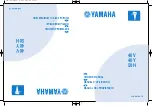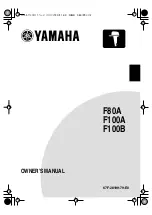
FLASH BIOS PROGRAMMING UTILITY
FLASH BIOS PROGRAMMING UTILITY
P5V30-B4 User’s Manual
P5V30-B4 User’s Manual
41
41
Updating the Award BIOS Code is made easy with the AWDFLASH Utility. Since this
mainboard features FLASH BIOS, it is not necessary to change the actual BIOS chip in
order to upgrade the System BIOS. The user can simply re-program the old BIOS using the
AWDFLASH Utility as follows:
1.
First, boot the system with DOS or to “Safe Mode” under Windows 95. If you are
booting DOS from a hard drive or floppy disk, press [F5] when the message “Starting
MS-DOS…” appears on the screen. If you are booting Windows 95, press the [F8] key,
and select the “Safe mode command prompt” option. This will assure that the system is
running in
“
real mode
”
with
no device drivers loaded
.
This is the only correct way to
run the AWDFLASH Utility program.
2.
There are (2) important files needed to re-program the BIOS. The first is
“AWDFLASH.EXE” which is the FLASH BIOS Programming Utility. The second file
needed is the updated “BIN” file which contains the actual BIOS code. This file will
have the extension [.bin], such as “P598GH.BIN”. Make sure these files are on the
diskette or hard drive in the same directory.
3.
Start the AWDFLASH Utility by changing to the directory where the two required files
exist and typing: AWDFLASH and pressing [ENTER].
4.
The AWDFLASH Utility Screen appears. You will be asked for the file name to
program. Type in the name of the new BIOS (.bin) file and hit [ENTER].
5.
The program will then ask if you want to backup the old BIOS. This is recommended
in case there are any problems with the new “.bin” file. Enter the name of the new
backup file (such as “backup.bin”) and press [ENTER].
6.
At this time the system will prompt you for final confirmation before beginning
programming. The Utility can be aborted at this time by hitting “n”. To begin
programming, hit “y”…
7.
When the Flash programming starts, a bar indicator will show the progress of the
programming operation. After successful completion, hit the reset button or power off
the computer.
































